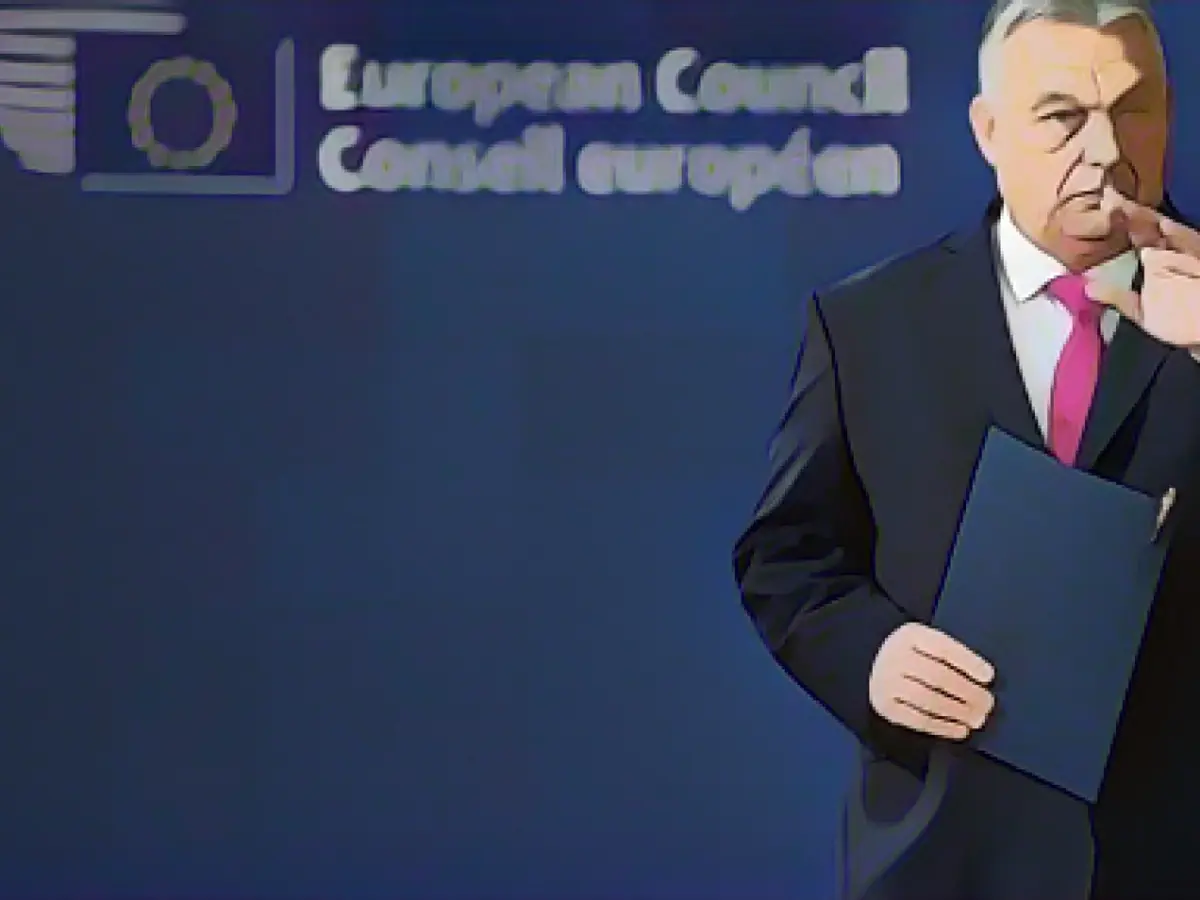Brussels Summit: Orban's Tactics Derail Ukraine's EU Bid
Hungarian Prime Minister Viktor Orban's controversial moves at the recent EU summit in Brussels have caused a stir. Orban's maneuvering resulted in an impasse over Ukraine's EU accession negotiations, leaving the outcome uncertain.
The EU summit, its denouement pushed back to this Friday, isn't likely to conclude until the weekend based on the tough negotiation talks. Finnish Prime Minister Petteri Orpo, anticipating the challenge, has packed extra shirts.
At the summit's outset, German Chancellor Olaf Scholz emphasized the necessity of advancing Ukraine's accession process and sending a clear message to Kiev, assuring their support. Scholz also stressed that Russian President Vladimir Putin should be aware that the EU remains steadfast in its commitment to Ukraine.
Meanwhile, Putin declared in Moscow that the West's support for Ukraine had already begun to falter. He argued that Ukraine is reliant on Western support and that the "gifts" will eventually run out.
Triggering a Compromise?
One possible solution to the impasse proved to be a compromise whereby the EU leaders would concur on the commencement of this essential step, i.e., EU accession negotiations with Ukraine, but a decisive decision on scheduling the first round of talks would be postponed until the next EU summit in March.
The EU Council President, Charles Michel, had initially proposed decisions to be made at the ministerial level. However, Orban objected wildly, decrying seven preconditions for moving forward in the accession process.
According to the EU Commission's analysis, three of these conditions remain unmet. Orban, unfazed, suggests that this does not warrant further discussion.
Hungary: On Principles, Not Perks
Orban categorically denies allegations that he wants to exploit the impasse to freeze EU funds for Hungary due to rule of law concerns. "This is not about a deal," he asserted. Orban reiterates that this stance is a matter of principles, not negotiations.
Hungary still awaits 21 billion euros in EU funding, which was frozen for rule of law deficits. Only recently, the EU Commission released ten billion euros due to completed judicial reforms.
Orban's Position: Nuances and Challenges
Orban's hardline stance at the summit is complicated by the June 2022 summit resolution regarding EU accession negotiations with Ukraine. This resolution states that further steps depend on meeting all preconditions, and Orban intends to uphold this agreement.
Supporters of a positive decision point out the symbolic significance of initiating EU accession negotiations. With time an essential factor in Ukraine's efforts to comply with reform requirements during ongoing conflicts, some leaders underscore the importance of sending this message to show unity.
Another topic of contention during the EU summit revolves around the European Commission's proposals for increasing the EU budget. Germany wants to limit these additions mainly toward Ukraine's financial aid, despite the need for funding in other areas, such as promoting competitiveness and EU migration policy.
Enriching the Discussion: Orban's Influence and Motivations
Orban's persistence in blocking Ukraine's EU accession negotiations is rooted in his broader political and economic strategies. These objectives intertwine to create a complex multifaceted position:
- Energy Security Concerns
- Orban has voiced worries about energy security, pushing for guarantees related to Russia's resumption of gas transit through Ukraine. His stance strengthens Hungary's energy supply and economic stability.
- Economic Interests
- Orban has utilized the call for strict financial criteria as leverage, arguing that the EU lacks the resources to accept Ukraine and emphasizing Hungary's economic losses due to Russia's sanctions.
- Minority Rights and Reforms
- Orban has posed concerns about Ukraine's compliance with certain reforms, particularly regarding the rights of the Hungarian minority in Transcarpathia. He has presented a list of ten demands, some of which seem non-negotiable, slowing down the negotiation progress.
- Ideological Affinity and Opposition to EU Aid for Ukraine
- Orban's staunch anti-Western sentiments and his closeness to Russian President Vladimir Putin influence his stance against EU aid for Ukraine.
- Blackmail Tactics
- Orban has a history of employing blackmail techniques to advance Hungary's interests, often at the expense of EU unity and cohesion.
These factors combine to shape Orban's stance on Ukraine's EU accession negotiations, reflecting an intricate interplay of economic, political, and ideological considerations.








